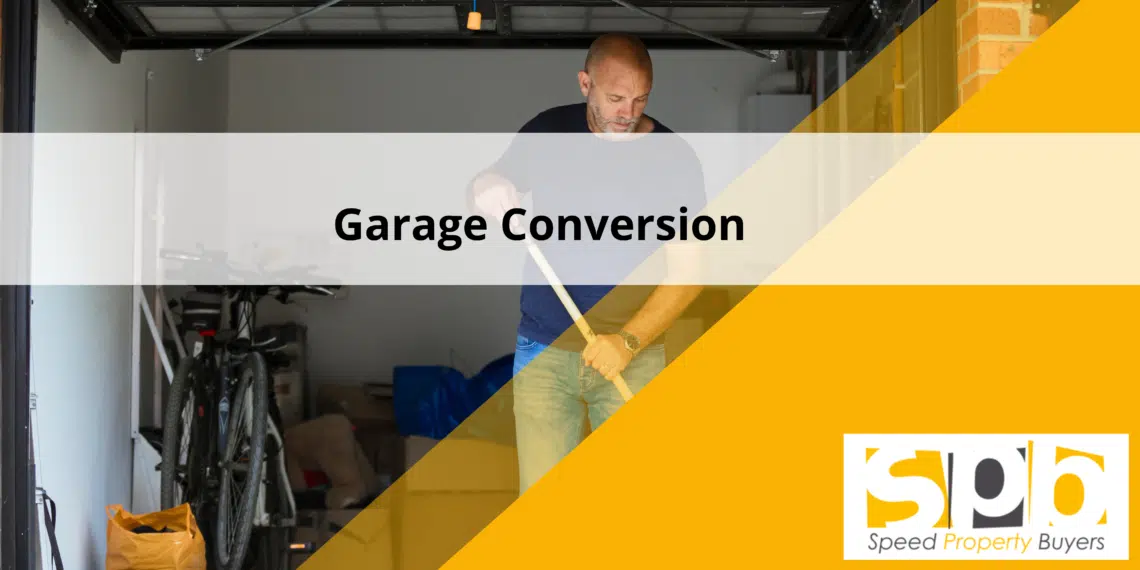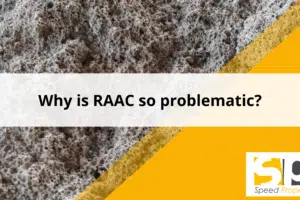Garage conversion – is it worth it?
Turn Garage into Room
A Step-by-Step Guide to Your Conversion
Converting a garage into a livable room is a fantastic way to add space, functionality, and value to your home. Whether you’re looking for a home office, an extra bedroom, or a cosy lounge, transforming an underused garage into a valuable living space can be a cost-effective solution. However, a successful conversion requires careful planning, from budgeting and design to ensuring compliance with local building codes. This step-by-step guide will take you through each stage of the conversion process, helping you turn your garage into a seamless part of your living space.
Is a Garage Conversion Right for You?
Before embarking on a garage conversion, consider how it aligns with your lifestyle and long-term plans. Converting your garage into a room can be an excellent option if you’re in need of extra living space without wanting to move or build an extension to main house.
Benefits of a Garage Conversion
Transforming a garage into a functional living space offers several benefits, from increasing home value to creating practical, usable areas that enhance your lifestyle.
Boosting Property Value
A well-planned garage conversion can increase your home’s value, potentially adding as much as 20% to the property’s market worth. Buyers are often attracted to homes with additional living space, making this investment both appealing and cost-effective in the long run.
Cost-Effective Additional Space
Compared to extensions or loft conversions, converting a garage is a budget-friendly alternative for adding more living area. Because the garage’s existing foundations and structure already exist, fewer materials and structural adjustments are needed, which can reduce project costs. This option is especially appealing if you’re looking for extra space without the hefty expense of more extensive construction.
Practical Use of Underused Space
If your garage is underused or simply a storage area, transforming it into a room makes it a functional part of your home. From a storage space to a home office or gym to a guest suite or entertainment room, a garage conversion offers flexibility to create a space that suits your specific needs, making the most of every square foot your property offers.
Planning and Budgeting
Effective planning and budgeting are required for a smooth garage conversion. Begin by assessing the scope of the project, from necessary structural work to final touches, such as flooring and decor. A well-thought-out plan, along with input from a building control officer, will ensure that your conversion stays on track. and meets your vision, both functionally and financially.
Garage Conversion Cost: What to Expect
Converting a garage into a functional room in the UK typically costs between £10,000 and £20,000. The actual cost will vary based on factors such as the size of the garage, its current condition, and the extent of structural changes needed. Expenses include insulating the walls, blocking up the existing garage door, and addressing any electrical or plumbing requirements. Factoring in these elements from the outset can help keep your project within budget.
Creating a Budget for Your Garage Conversion
Setting a realistic budget is required for a successful garage conversion. Breaking down each stage of the project—materials, labour, and any unforeseen costs—will ensure you’re prepared from start to finish. By outlining these costs early on, you’ll have a clear understanding of what’s achievable within your budget, allowing for adjustments if necessary.
What Do You Want to Achieve with Your Garage Conversion?
Before starting your conversion, have a clear vision of how you intend to use the new space. Whether you envision a home office, guest room, or gym, knowing exactly what you want will guide the design and layout, ensuring that the new wall room serves its intended purpose for years to come.
Designing Your Garage Conversion
While it’s possible to design your garage conversion independently, enlisting the help of an architect or architectural designer is often recommended. Professional designers bring a wealth of experience, ensuring that the most diy garage conversion meets both your aesthetic goals and structural requirements. Finding a local architect or architectural technician familiar with garage conversions can help streamline the design process, turning your vision into a feasible plan that complies with local regulations and enhances your home’s value.
Considerations for a Successful Garage Conversion
Several factors will impact both the cost and outcome of your garage conversion. The quality and condition of the existing structure play a role, as repairs to the foundation or walls may be necessary. Also, consider aspects like heating, replacing the garage door with a solid wall or window, and whether you’ll need to remove any load-bearing walls. Each of these choices can influence the cost and complexity of the project, so weigh them carefully to create a space that meets your needs and budget.
Do I Need Planning Permission to Convert My Garage?
In many cases, you can convert your garage without needing planning permission, as most garage conversions fall under building control and permitted development rights. However, check with your local planning authority to confirm the specific building regulations approval that apply in your area. If you are converting a detached garage, you may be required to apply for a change of use, especially if it involves modifying the structure.
Building Regulations for Garage Conversions
Regardless of whether planning permission is required, all garage conversions must comply with building regulations. A garage conversion is considered a ‘change of use,’ which necessitates approval from your local council. Before starting any work on partial garage conversions, you’ll need to notify the council by submitting either a building notice or a full plans application. This step ensures that the conversion meets safety and structural standards, safeguarding your investment and ensuring the space is suitable for its intended use.
Insulating Your Garage Conversion
Proper insulation ensures comfort and energy efficiency in your garage conversion. Garages typically consist of simple single-skin blockwork structures, which lack the thermal buffering found in traditional homes. This means that without effective insulation, the space can experience heat loss in winter and excessive heat in summer.
Consider insulating the walls, roof, and floor to create a more stable and comfortable environment. Using materials such as foam board or insulated plasterboard can help maintain the habitable room at a pleasant temperature year-round, reducing energy costs and enhancing the usability of the space.
Garage Ventilation: What You Need to Know
Ventilation is a component of any garage conversion, as it helps maintain air quality and prevent moisture buildup. Regardless of the room’s intended use, ensuring proper airflow to avoid issues such as dampness or condensation. Incorporating windows, vents, or mechanical ventilation systems will facilitate air exchange and improve comfort.
This requirement is not only a practical consideration but also a legal one, as building regulations mandate adequate ventilation in habitable spaces. Taking the time to plan your ventilation strategy will contribute to a healthier and more enjoyable living environment.
Replacing Your Garage Door
Deciding whether to replace your garage door is an important consideration that can impact the overall cost of your conversion. If you choose to retain the existing door, you might save on expenses, but it may not complement your new living space aesthetically or functionally. On the other hand, installing a new garage door can enhance the appearance of your home while improving insulation and security. Whether you opt for a standard door or a more modern design, think of this decision early in the planning process to ensure it aligns with your conversion goals.
Installing New Windows in Your Garage Conversion
Adding new windows to your garage conversion is a fantastic way to enhance natural light and ventilation, creating a more inviting and comfortable space. When selecting windows, consider their size, style, and placement to maximise light while maintaining privacy. Options such as casement, sliding, or bay windows can each bring unique benefits to your design. Additionally, think about energy-efficient glazing to help regulate temperature and reduce energy bills. Thoughtfully chosen windows can improve the overall atmosphere of your converted garage, making it a pleasant place to spend time.
Electrical Work for a Garage Conversion
When planning your garage conversion, account for electrical work, as it plays a critical role in ensuring safety and functionality. Labour costs can vary based on the tradespeople you hire, including those installing the consumer unit. and the complexity of the electrical requirements. This may include installing new lighting fixtures, power outlets, and circuit boards to accommodate your needs. Engaging a qualified electrician early in the process can help you create a detailed plan, ensuring that all electrical work meets safety standards and aligns with your overall vision for the space.
Plumbing Work for a Garage Conversion
If your garage conversion involves adding a bathroom or kitchen, plumbing work will be necessary. The complexity of this task can vary depending on your design and existing plumbing infrastructure. It’s vital to consider both the cost and potential challenges associated with installing pipes, drains, and fixtures. Engaging a professional plumber familiar with a damp proof membrane can help you navigate these complexities. and ensure that the plumbing work is executed efficiently and up to code, providing a functional and convenient space in your newly converted garage.
Concrete Garage Conversion Floor Insulation
Typically, garage floors are constructed from large concrete slabs that offer minimal thermal conductivity. Insulating your garage floor can enhance the energy efficiency of your conversion, helping to maintain a comfortable temperature throughout the year. Options for floor insulation include rigid foam boards or insulated underlay, which can help prevent heat loss and create a more inviting environment. Investing in proper insulation and garage doors will contribute to the overall comfort and livability of the space.
Garage Conversion Wall Insulation
Wall insulation retains heat in your garage conversion. Most garages have at least one exterior wall, and detached garages are exposed on all sides to the elements, including wind and rain. Insulating these walls not only improves energy efficiency but also helps to regulate the internal temperature, making the space more comfortable throughout the seasons. Consider using materials like cavity wall insulation or insulated plasterboard to effectively insulate your garage walls, ensuring that your converted garage space remains warm and welcoming.
Insulating a Pitched Roof Garage Conversion
Roof insulation is a vital aspect of a garage conversion, particularly for pitched roofs, as it plays a role in heat retention. Since heat naturally rises, preventing the loss of warmth through the roof is to maintaining a comfortable temperature in your newly converted space. Effective insulation materials, ensuring the structure is structurally sound, such as mineral wool or rigid foam boards, can be installed between the rafters. to provide excellent thermal performance, ensuring that your garage remains cozy during the colder months.
Waterproofing Your Garage Conversion
A well-executed garage conversion can transform your space into an office, gym, workshop, or bedroom, enhancing your home’s functionality and value. Proper waterproofing and fire safety will protect your conversion from moisture damage, which can lead to structural issues and mold growth over time. At Permagard, we offer a variety of industry-leading waterproofing products designed to shield your garage conversion and provide lasting protection, ensuring your investment remains secure for years to come.
Soundproofing a Garage Conversion
Soundproofing is often an overlooked aspect of garage conversions, yet it can create a comfortable living space. If your garage is being transformed into bedrooms, offices, or home cinemas, you’ll want to ensure these areas are shielded from external noise, making it a straightforward garage conversion . Using soundproofing materials, such as acoustic panels and insulation or flat roof, can reduce noise transfer, providing a peaceful environment for work and relaxation.
Finishing Touches for Your Garage Conversion
The finishing touches can make a difference in the overall feel and functionality of your garage conversion. Consider elements such as flooring, lighting, and decoration to create a welcoming atmosphere. Selecting durable yet stylish flooring options, adequate lighting fixtures, and personal decorative touches can enhance the usability and aesthetic appeal of the space, making it truly feel like an extension of your home.
Garage Conversion Types
There are different garage conversion costs. Have a look at them before taking up the task.
Attached Garage Conversions
Attached garages are the most common type of garage in the UK and are often the easiest to convert. The cost of converting an attached garage typically ranges from £10,000 to £20,000, making it a cost-effective way to add extra living space to your home. The proximity to your main living area can also facilitate easier access and integration into your home.
Integral Garage Conversions
Garages, which are already connected to your home, provide a seamless opportunity for conversion. The cost for transforming such garage usually falls between £10,000 and £14,000. This type of conversion can enhance the flow of your habitable space. and increase your home’s value without the need for extensive alterations.
Detached Garage Conversions
Detached garages tend to be the most expensive to convert, with costs ranging from £15,000 to £25,000. While these conversions can require more extensive planning and resources, they also offer the potential for creating a completely independent living space, providing versatility and privacy.
Common Questions and Concerns
Do I Need an Architect for a Garage Conversion?
While many garage conversions fall under permitted development rights, hiring an architect can be beneficial to ensure a well-thought-out design. Architectural drawings for a garage conversion typically cost around £2,000, and their expertise can help you maximize the use of space and navigate any planning complexities.
Do I Need a Structural Engineer for a Garage Conversion?
If you plan to build on top of your garage roof or make structural changes, consulting a structural engineer is advisable. Their expertise ensures that your conversion is safe and compliant with regulations, and their fees usually range from £500 to £1,000, depending on the project’s complexity.
How Long Will a Garage Conversion Take?
The duration of a garage conversion can vary, typically taking around 2 to 4 weeks. The specific timeline will depend on the complexity of the partial garage conversion. and the number of tradespeople involved in the building project itself. Planning ahead and coordinating schedules can help streamline the process and reduce any potential delays.
What Does a Garage Conversion Involve?
A garage conversion generally involves a range of tasks, including bricklaying, window fitting, and electrical work. Consider the scope of work and the variety of tradespeople required for the project. Engaging professionals with the necessary skills can help ensure that each aspect of the conversion is completed to a high standard.
Is a Garage Conversion Worth It?
Converting a garage into a room can be a worthwhile investment, especially if the garage is underutilised. Weigh the benefits and drawbacks of creating a new room carefully before proceeding, considering factors like increased home value, enhanced functionality, and potential disruption during the conversion process.
Can I Convert a Garage Myself?
While some DIY enthusiasts might consider tackling a garage conversion independently, it often requires specialized skills in various trades. If you’re unsure about any aspect of the conversion, it’s advisable to hire professionals to ensure the project is completed safely and to a high standard. This can save you time, stress, and potentially costly mistakes in the long run.
Quick checklist:
| Aspect | Details |
|---|---|
| Planning Permission | Usually not needed for attached garages, but check local rules – especially for detached ones. |
| Building Regulations | Applies to all conversions. Covers structure, safety, insulation, fire protection, and more. |
| Walls | Check for cavity walls. If not, insulation will be needed. |
| Roof Height | Ensure there’s enough height for insulation and flooring. |
| Windows | Add windows for natural light and ventilation. |
| Utilities | Plan how you’ll connect plumbing, electrics, and drainage to the main house. |
| Insulation | Garages aren’t built to retain heat – insulating floors, walls, and ceilings is essential. |
| Fire Safety | Ensure proper materials, alarms, and escape routes are in place. |
| Damp Proofing | Garages are prone to damp. Install proper damp-proofing measures. |
| Property Value | May increase value – especially in urban areas where parking is limited. Check local trends. |
Thinking About a Garage Conversion – Or Selling Instead?
Not sure if converting your garage is the right move? While it can add space and value, sometimes the quickest way to unlock your property’s potential is to sell it fast. No planning permission, no building work, no stress. At Speed Property Buyers, we buy homes in any condition and can give you a cash offer in as little as 24 hours.









Comments (0)